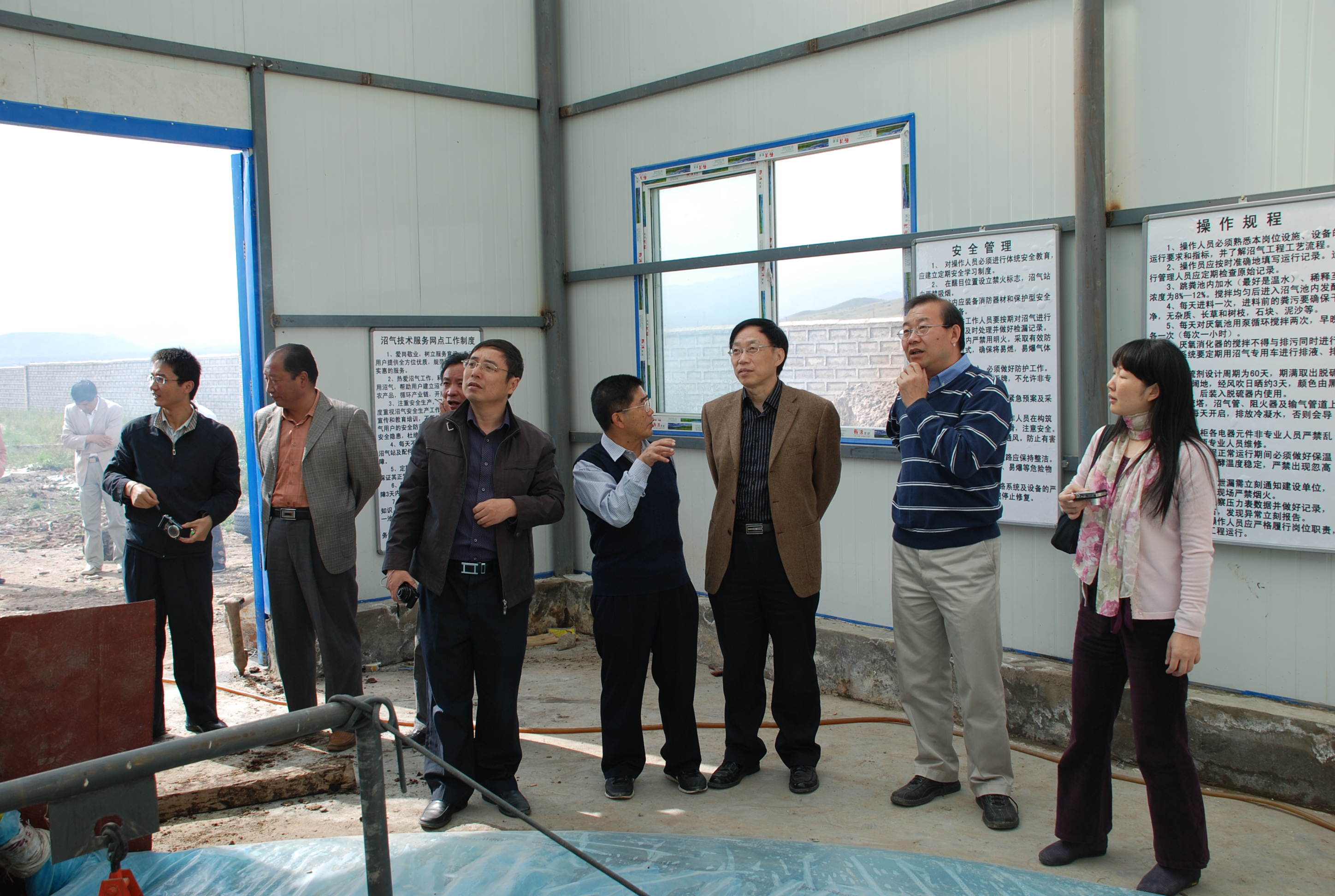From September 3 to 6, 2010, Prof. Li HUANG, Director-general, led a delegation of six scientists from Institute of Microbiology, Chinese Academy of Sciences (IMCAS) to visit Haibei (Tibetan) and Hainan (Tibetan) autonomous prefectures of Qinghai Province to do field research on forage processing, silage and fermenting methane.
During this visit, a symposium on forage processing and silage was held attended by representatives from Qinghai Science & Technology Department, Northwest Institute of Plateau Biology, Chinese Academy of Sciences, Qinghai Animal Husbandry and Veterinary Medicine College and Qinghai University. They discussed the possibilities of collaboration in forage processing and silage between IMCAS and research institutes in Qinghai. If the cooperation goes on well, IMCAS can use its advantage in fermenting methane to help solve the forage store and processing problems which will be a huge push for the development of animal husbandry in Qinghai. This symposium also marks that IMCAS and research institutes in Qinghai step into a practical collaboration stage.
Located on the northeastern part of the Qinghai-Tibet Plateau, Qinghai is one of the animal husbandry bases in China, which is famous for its yak and Tibetan Sheep. The output of stock raising contributes to a large amount of the provinces’ economy and is crucial for local people’s income increase. But due to the critical weather in spring and winter, there is inadequate forage which causes loss of many stocks and hundreds of million yuan every year.


